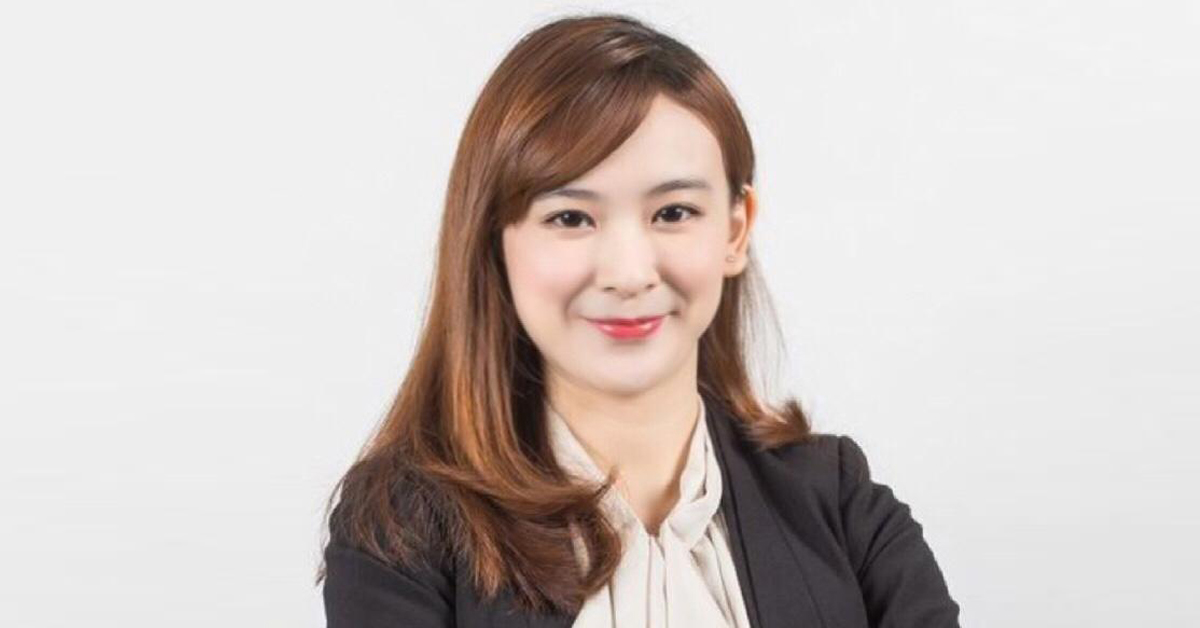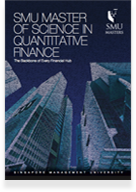
Even in the number-crunching world of investment and banking, quants are a special breed of finance professionals. These quantitative traders and analysts live, breathe and sleep numbers, and are skilled in using mathematical models to capitalise on market opportunities.
The potential of generating large profits with mitigated risks using the quant approach is considerable, and with the global financial industry growing more sophisticated, it’s no wonder that the demand for qualified quantitative finance professionals is rising steadily.
The prospect of a challenging and rewarding career as a quant professional was exactly what inspired Grace Tan to sign up for a Master’s degree in Quantitative Finance at Singapore Management University’s (SMU) Lee Kong Chian School of Business (LKCSB).
Before enrolling in this post-grad programme in 2017, Grace – who has a Bachelor’s degree in Economics and Finance – had already clocked four years of working experience in the banking sector and had been looking for a way to upskill herself and pursue career progression in the area of her passion - asset pricing and valuation.
“I felt that my educational and work experience were less relevant in securing the roles I was interested in”, Grace explains. “Since I had done well in quantitative finance during my Bachelor’s, I took the leap of faith and signed up for the SMU MSc in Quantitative Finance (MQF) programme.”
Step by step
Grace now works at sovereign wealth fund, GIC, where she handles valuation and pricing. The path to this role, which she enjoys immensely, might not have unfolded without her MQF experience.
The MQF programme is tailored to train professionals in three key areas of finance — pricing and hedging, risk analytics and management, and quantitative trading and investment. Grace was able to tap on the necessary expertise and skill sets gained for real-world application, effectively bridging the gap between theory (acquired during her undergraduate days) and practice.
The programme’s relevance to actual financial markets was a great draw for Grace. She had been been intrigued by models and formulas capable of pricing financial products and calculating risk since she was an undergraduate. But what really boost her passion for quantitative finance was learning coding during the MQF programme, and being able to build her own models or trim repetitive calculations for better efficiency. She shared that for someone without basic knowledge in coding like her, the programme may be slightly challenging, “I did struggle for abit, but I had good classmates who gave me encouragement.”
The MQF programme has two tracks. The first is a Singapore-based track, where students take all their modules at SMU and graduate with an SMU MQF degree. The second is an international track, where students split their studies between SMU in Singapore and Cass Business School in the UK, and graduate with a joint-degree from both institutions.
Grace decided on the Singapore-based track as she wanted to secure an internship at a local company to give her a headstart into the area she is keen in. In fact, Grace explained that she was first attracted to SMU because of it’s reputation of high employability for it’s graduates. She eventually landed a four-month internship in market risk at the Bank of Singapore.
After completing her internship, she gained an interview for her current role at GIC. Grace credits the MQF programme with helping her score the role. During the interview, the product knowledge she acquired about derivatives such as swaption and volatility swap during her post-grad studies were put to test.
The knowledge Grace gained during her year-long programme has also come in handy on the job. “Currently, I have the opportunity to build a model from scratch. With the MQF background, it is easier to research and pick up information needed for the project. For example, one of the input I need to model is hazard rate, and being familiar with that has given me a direction in terms of building the model.”
The rigorous and comprehensive training she received during her MQF has given her a lot of versatility, says Grace. She also added that the industry insights gained during her participation in career talks, networking sessions and talks by industry speakers organised by SMU enabled her to relate better to her role now.
She has come a long way since her graduate days. Thinking back, if not in the field of finance, “I could have gone into IT or data,” she mused.
Speak to our Admissions Advisors
Lee Kong Chian School of Business
Postgraduate Admissions
Singapore Management University
Lee Kong Chian School of Business
Graduate Programmes Office, Level 4
50 Stamford Road, Singapore 178899
Tel: +65 6828 0882
Join us at the upcoming events
Singapore Management University
50 Stamford Road Singapore 178899
Singapore
